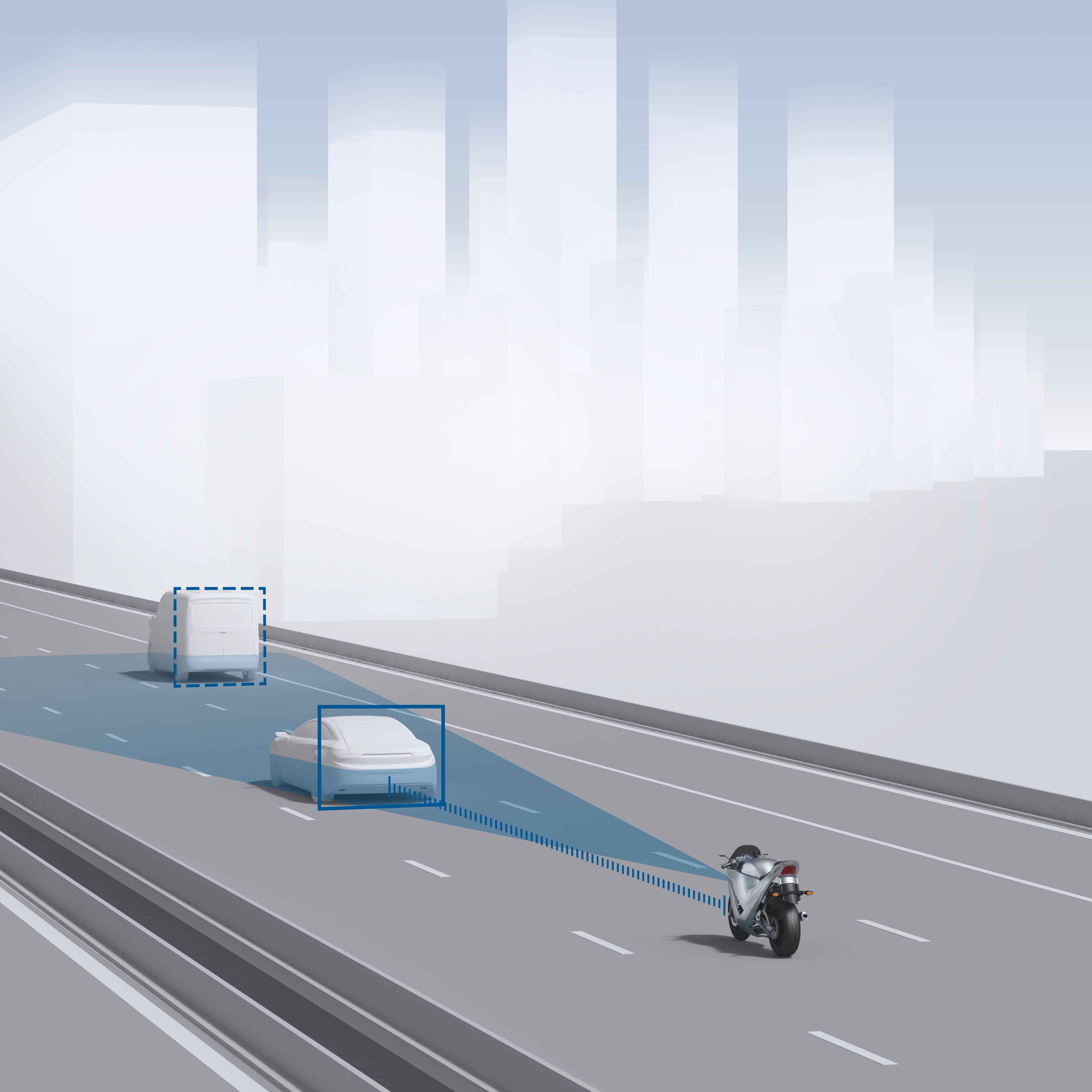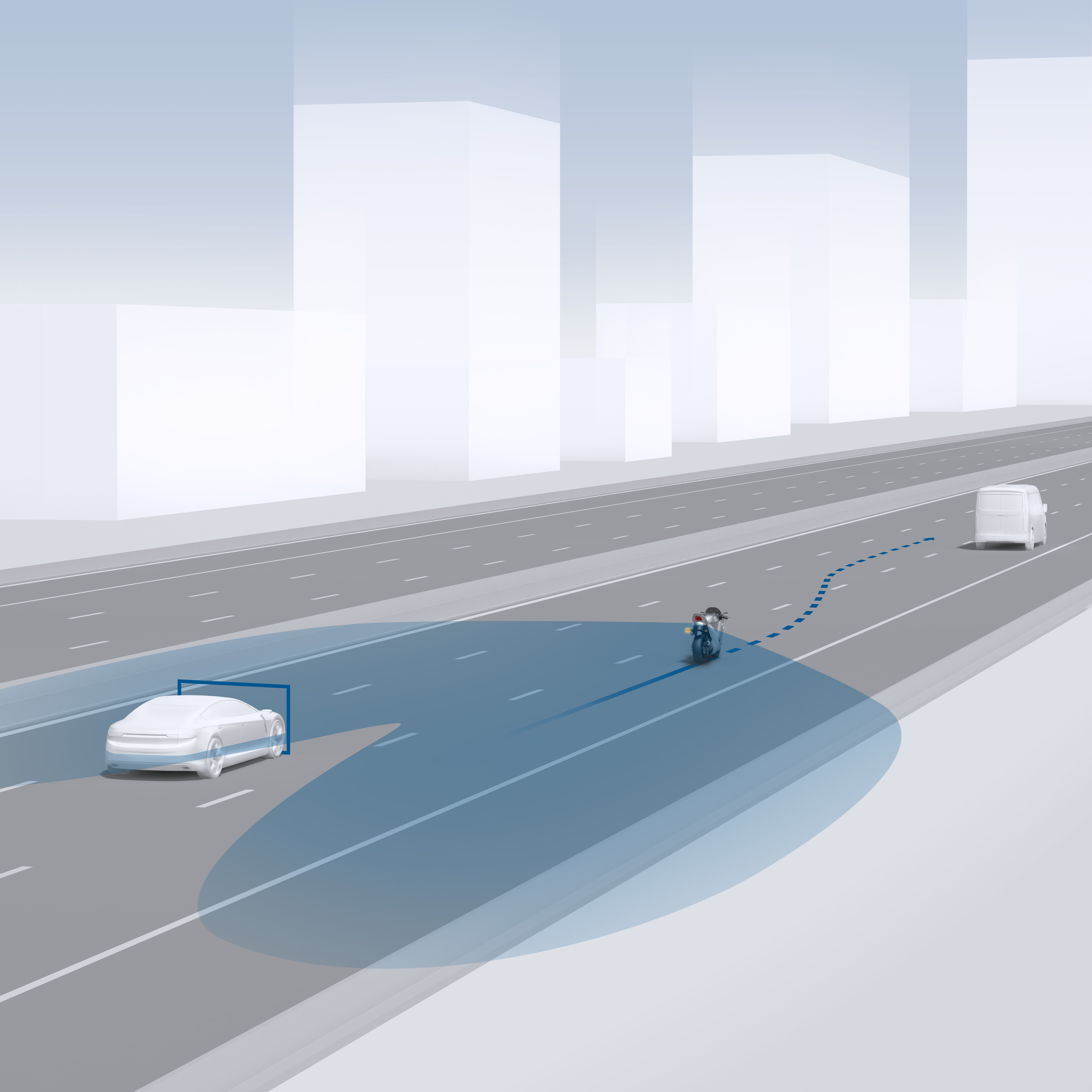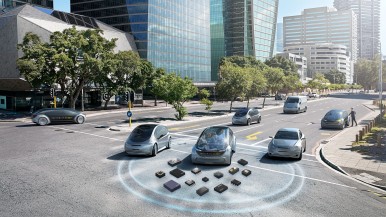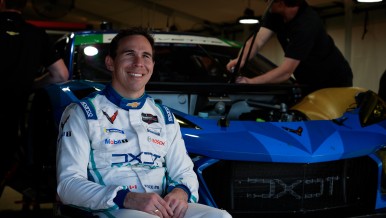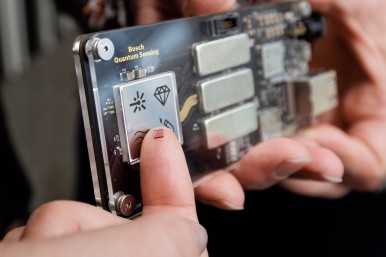Stuttgart, Germany – Cars can be made safer through the addition of crumple zones, airbags, and seat belts. Motorcyclists, on the other hand, face considerably more danger when riding: the risk of dying in an accident is up to 20 times higher for them than for car drivers. In fact, the number of fatal motorcycle accidents in Germany went up by 9 percent last year (source: German Federal Statistics Office). Bosch has a clear vision: no more fatalities for motorcyclists in road traffic. That is why the company has developed a new safety package for motorcycles, comprising adaptive cruise control, forward collision warning, and blind-spot detection. This package is built on technologies that also enable automated driving in cars. The motorcycle manufacturers KTM and Ducati will include the new rider assistance systems in production models as soon as 2020. For Bosch, this is the next step along the path toward accident-free riding – one that doesn’t reduce enjoyment and doesn’t take away motorcyclists’ responsibility. “Bosch is taking motorcycling safety to a whole new level,” says Dr. Dirk Hoheisel, member of the board of management of Robert Bosch GmbH.
Mobility is the largest Bosch Group business sector. According to preliminary figures, it generated sales of 55.9 billion euros in 2024, and thus contributed around 62 percent of total sales. This makes the Bosch Group one of the leading mobility suppliers. Bosch Mobility pursues a vision of mobility that is safe, sustainable, and exciting. For its customers, the outcome is integrated mobility solutions. The business sector’s main areas of activity are electrification, software and services, semiconductors and sensors, vehicle computers, advanced driver assistance systems, systems for vehicle dynamics control, repair-shop concepts, as well as technology and services for the automotive aftermarket. Bosch is synonymous with important automotive innovations, such as electronic engine management, the ESP anti-skid system, and common-rail diesel technology.
The Bosch Group is a leading global supplier of technology and services. It employs roughly 417,900 associates worldwide (as of December 31, 2024). According to preliminary figures, the company generated sales of 90.5 billion euros in 2024. Its operations are divided into four business sectors: Mobility, Industrial Technology, Consumer Goods, and Energy and Building Technology. With its business activities, the company aims to use technology to help shape universal trends such as automation, electrification, digitalization, connectivity, and an orientation to sustainability. In this context, Bosch’s broad diversification across regions and industries strengthens its innovativeness and robustness. Bosch uses its proven expertise in sensor technology, software, and services to offer customers cross-domain solutions from a single source. It also applies its expertise in connectivity and artificial intelligence in order to develop and manufacture user-friendly, sustainable products. With technology that is “Invented for life,” Bosch wants to help improve quality of life and conserve natural resources. The Bosch Group comprises Robert Bosch GmbH and its roughly 470 subsidiary and regional companies in over 60 countries. Including sales and service partners, Bosch’s global manufacturing, engineering, and sales network covers nearly every country in the world. Bosch’s innovative strength is key to the company’s further development. At 136 locations across the globe, Bosch employs some 86,900 associates in research and development, of which nearly 48,000 are software engineers.
Additional information is available online at www.bosch.com, www.iot.bosch.com, www.bosch-press.com.






